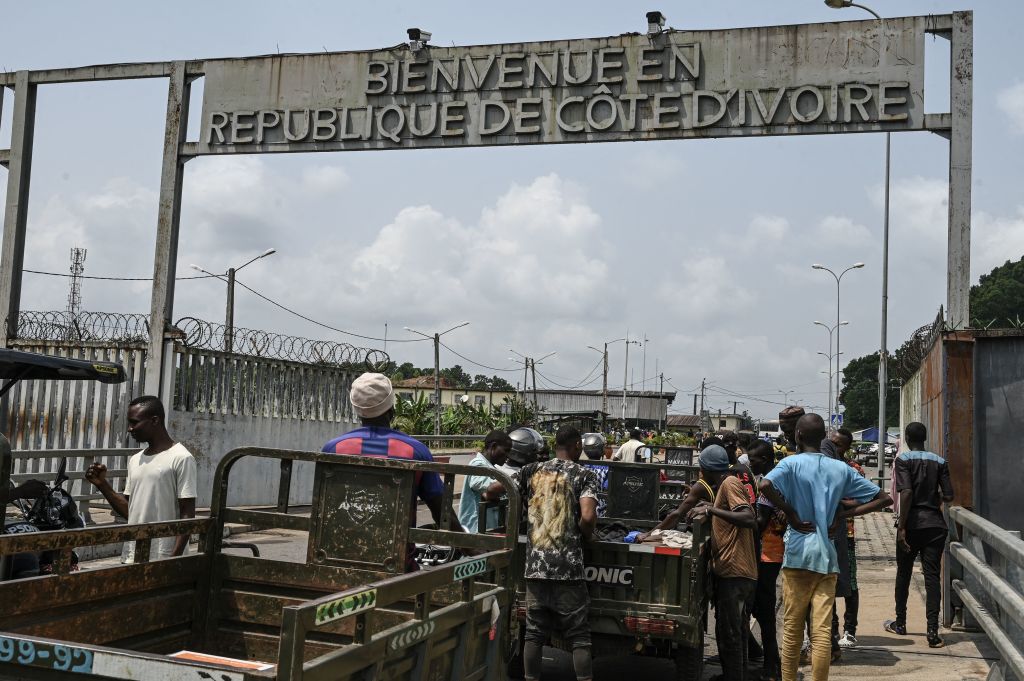Drug Trafficking Thrives Along Inland Borders, Coastal Zones
ADF STAFF
Porous borders and weak enforcement have turned certain regions into highways for international drug trafficking, which in turn fuels insurgencies and conflicts. West Africa in particular has become the transit hub for drugs moving between cartels in Latin America and users in Europe.
As countries struggle to thwart drug traffickers, experts say they could benefit from a three-pronged approach: boosting law enforcement in border regions; sharing intelligence and resources to build a united front against the transnational criminal organizations; and engaging border communities as partners in their anti-trafficking work.
“We need to think in a more innovative way if we really want to win the fight against drugs,” John Pokoo, head of the Conflict Management Programme at the Kofi Annan International Peacekeeping Training Centre in Ghana, said during a recent webinar sponsored by the African Center for Strategic Studies.
Although some African countries have begun loosening legal restrictions on cannabis, harder drugs such as cocaine and heroin remain widely illegal. Along with those, traffickers have begun moving psychotropics, methamphetamine and fentanyl through Africa, according to Dr. John Ndugutse, director of the East African Police Chiefs Coordination Organization’s Counterterrorism Center of Excellence.
Ndugutse urged governments to put more effort into enforcing laws to protect their societies and economies from the detrimental impact of illegal drugs.
“The key issue is to enforce the policies to the letter rather than letting it become a mess,” he said. “The law and policies are enough. The problem is enforcement.”
Inland borders are not the only area where countries need to step up enforcement. Coastal areas have become important entry points for drugs, particularly away from official ports.
As illegal fishing damages coastal fish stocks, artisanal fishers are turning to drug trafficking to make a living. They’re able to meet drug traffickers at sea, then ferry drugs onto shore through lightly patrolled coastal waters.
Transnational organized criminal groups “are quick to exploit nonexistent or ineffective border areas,” Pokoo said. “It’s not easy to pacify all of those areas. We can’t police them effectively.”
That makes it crucial for African countries to share resources and evidence from investigations into drug trafficking across their borders, both men agreed. Organizations such as the Economic Community of West African States and the African Union can help.
Too often, however, countries take a different approach.
“The power-driven approach to border governance sees anything beyond a particular country’s jurisdiction as an enemy,” Pokoo said.
Cooperation is necessary since populations often live on one side of a national border and go to school or work on the other. For example, between Ghana and Burkina Faso, there are 44 official border crossings but about 190 unofficial ones where people cross between the countries for school, work or other purposes.
Border communities themselves might offer countries their best weapon against drug trafficking.
By engaging with community members, particularly the young people targeted by drug traffickers, law enforcement officials can better understand how traffickers operate in border areas.
But the biggest defense against drug trafficking in border areas might involve boosting them economically.
National governments often neglect border zones, creating a sense of resentment among the population and driving some people to choose drug trafficking and terrorism to make a living.
“I want to see border regions coming across more clearly as centers of employment, not as centers of chaos and crime,” Pokoo said.
He envisions border regions where one side produces raw materials and the other processes them for sale.
“Between what is on paper and what is on the ground, there is a long way to go for developing border regions,” Pokoo said.


Comments are closed.